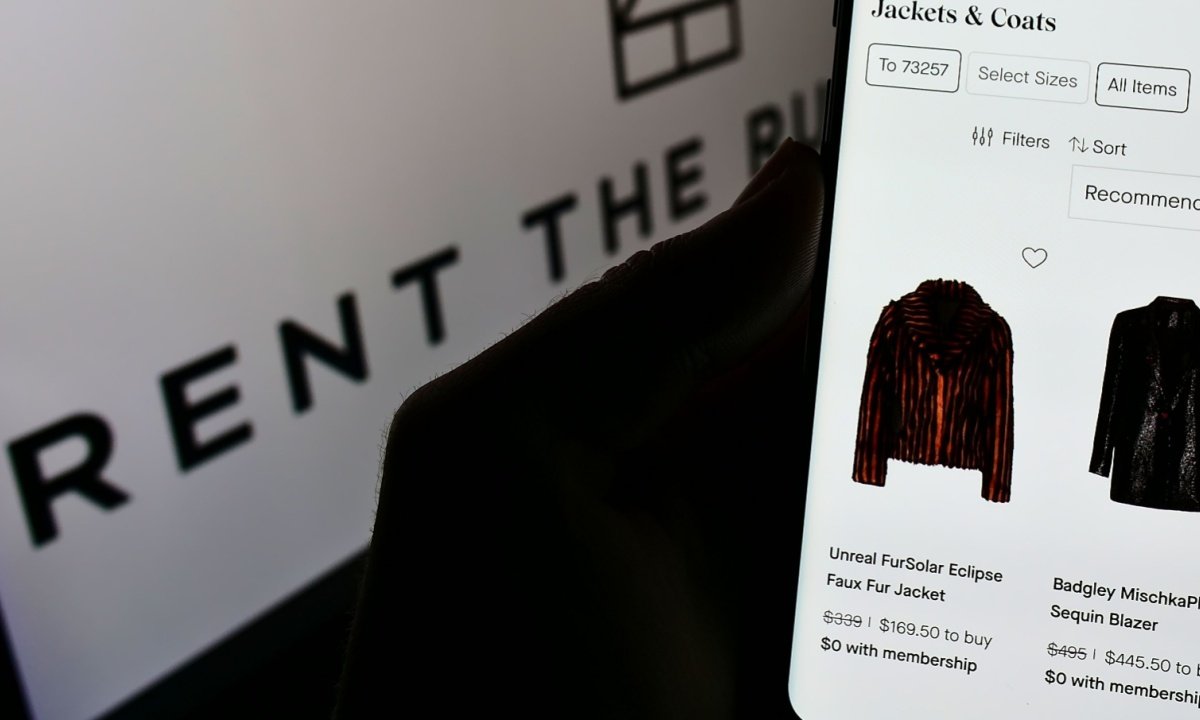Business
Apple plans AI-powered web search tool for Siri to rival OpenAI, Perplexity

[LOS ANGELES] Apple is planning to launch its own artificial intelligence (AI)-powered web search tool next year, stepping up competition with OpenAI and Perplexity AI.
The company is working on a new system, dubbed internally as World Knowledge Answers, that will be integrated into the Siri voice assistant, according to sources with knowledge of the matter. Apple has also discussed eventually adding the technology to its Safari web browser and Spotlight, which is used to search from the iPhone home screen.
Apple is aiming to release the service, described by some executives as an “answer engine”, in the spring as part of a long-delayed overhaul to Siri, said the sources, who asked not to be identified because the plans have not been announced.
The idea is to make Siri and Apple’s operating systems a place where users can look up information from across the Internet – in a similar fashion to ChatGPT, AI Overviews in Google Search and a crop of new apps. The approach will rely on large language models, or LLMs, a key technology underpinning generative AI.
The underlying technology enabling the new Siri could come in part from Alphabet’s Google, Apple’s longtime partner in Internet search. The companies reached a formal agreement this week for Apple to evaluate and test a Google-developed AI model to help power the voice assistant, the sources said.
Apple’s new search experience will include an interface that makes use of text, photos, video and local points of interest, according to the sources. It will also offer an AI-powered summarisation system designed to make results more quickly digestible and more accurate than what’s offered by the current Siri.
BT in your inbox
Start and end each day with the latest news stories and analyses delivered straight to your inbox.
Spokespeople for Cupertino, California-based Apple and Mountain View, California-based Google declined to comment.
Apple shares climbed to a session high on Wednesday after Bloomberg News reported on the search plan, adding to earlier gains. The stock rose 3.8 per cent to US$238.47 at the close in New York, marking the biggest one-day increase in almost a month.
Today’s Siri can answer basic questions and provide facts about notable people, events, movies and sports, among other things. But it struggles with more complex queries and general-knowledge searches, instead often providing results from Google or ChatGPT. The voice assistant, groundbreaking when it was released in 2011, has come to represent Apple’s shortfalls in AI.
The latest development comes the same week a US judge ruled that Apple can maintain an arrangement that makes Google the default search engine on its devices – with minor tweaks. That agreement has generated roughly US$20 billion a year in revenue for Apple, and investors were relieved to see it continue. But a pivot to AI-based search remains in motion.
Earlier this year, the company’s services chief, Eddy Cue, told a courtroom that the number of Google search queries from Apple devices had dropped. “That has not happened in 20 years,” he said. “We are starting to see what I believe are potential formidable competitors” to traditional search engines, he added, referring to AI-based options.
Still, Tuesday’s ruling preserving Apple’s Google search deal could mean the company now has less urgency to develop homegrown services.
Siri overhaul
As part of the long-promised Siri revamp, the digital assistant will be able to tap into personal data and on-screen content to better fulfil queries. It will also be able to more precisely navigate users’ devices via voice. But now Apple is looking to go further with the update. A technology overhaul for Siri, dubbed Linwood and LLM Siri, lays the groundwork for the AI search feature.
Craig Federighi, Apple’s head of software engineering and the person overseeing the Siri strategy, hinted at the expanded set of changes in a recent all-hands meeting with employees.
“The work we have done on this end-to-end revamp of Siri has given us the results we needed,” he said. “This has put us in a position to not just deliver what we announced, but to deliver a much bigger upgrade than we envisioned.”
A number of teams are working on the search initiative, including the Siri group under Federighi, the AI division led by John Giannandrea and Apple’s services unit run by Cue. Mike Rockwell, the creator of the Vision Pro headset, is spearheading the effort under Federighi, while Robby Walker, an ex-Siri chief, is a key driver of the project under Giannandrea.
Apple aims to use a similar underlying search system for both the world knowledge feature and the already announced – but delayed – ability to more precisely search through a user’s device. That tool should let people more quickly find specific images, files and other types of information.
Though Apple is mainly looking to weave the new search system into existing features, it has also weighed the idea of building a chatbot-like app for search. Bloomberg reported last month that Apple is hiring staff for a new Answers, Knowledge and Information, or AKI, team, which is contributing to the search work.
The new Siri and search changes are currently slated for an upcoming software update known internally as Luck E. That corresponds to iOS 26.4, which is scheduled for release as early as March.
The initial version of iOS 26 will roll out this month as part of Apple’s launch of new iPhones, its flagship product. The company is scheduled to announce the iPhone 17 lineup next Tuesday.
Gemini and Anthropic
Apple is rebuilding Siri around three core components: a planner, the search systems for the web and devices, and a summariser. The planner interprets voice or text input and decides how to respond; the search system scans the web or user data; and the summariser pulls it all together into an answer.
In a major shift, Apple is considering powering the new Siri at least in part with third-party AI models, via a project it has called Glenwood. The current version of Siri runs entirely on Apple technology.
Apple has recently been leaning towards using a custom-built Google Gemini model for the summariser, the sources said. It would run on Apple’s own Private Cloud Compute servers. The search engine giant already delivered the technology to Apple – and both companies are now collaborating on fine-tuning and testing it.
Apple is considering using the Google model for the planner function as well, but it also continues to evaluate relying on Anthropic PBC’s Claude or in-house models. Apple and Google also have not ruled out eventually using the Gemini model to handle additional AI and search-related features.
As of now, the iPhone maker plans to retain its own technology, called Apple Foundation Models, for searching user data. That should help the company preserve user privacy because customer information will not be processed with third-party technology.
Google was not initially the frontrunner on the Siri project. Anthropic had previously been in the lead for a deal, with Apple’s internal evaluations indicating that Claude was ahead of Gemini in terms of quality.
But Anthropic demanded a high price for using its technology, more than US$1.5 billion a year, and Google was open to more favourable financial terms, according to the sources. That led Apple to ask Google to create a model to power Siri, as Bloomberg reported last month.
It’s not the first time Apple and Google have held talks on an AI-related deal. Last year, Apple approached Google about integrating the Gemini chatbot into Siri, but partnered with OpenAI instead. Both companies publicly said they were still working towards an agreement, but the feature has yet to be introduced to consumers.
New look
Beyond the Siri and AI search upgrades in the first half of next year, Apple is planning a visual redesign of the voice assistant and a health AI agent to power a paid wellness subscription service in 2026. It’s also working on an additional Siri update that will bring stronger conversational abilities to upcoming home devices.
It’s all part of a comeback plan in AI, an area where the company struggled to keep pace with Silicon Valley rivals. After the new Siri was delayed this past spring, Apple shook up its executive ranks to start its turnaround bid. But the process will take time. When Apple unveils the iPhone 17 next week, it isn’t expected to introduce major new AI features.
Acquisition strategy
During the development of the new Siri, Cue and mergers-and-acquisitions chief Adrian Perica weighed a series of possible takeovers. The company discussed buying Perplexity and Mistral, Bloomberg first reported. Apple executives met with Mistral, a French AI startup, as recently as July.
Apple seriously evaluated Perplexity’s technology over the summer, but is no longer actively weighing a bid. Instead, its own new search product will compete with the startup’s offering. Apple remains on the hunt for deals, particularly to replenish talent.
The company is dealing with a wave of attrition. Apple’s Foundation Models team, a group of several dozen academics, researchers and engineers, has been bleeding employees for weeks.
At the beginning of July, the department’s creator and chief, Ruoming Pang, left for an over US$200 million pay package at Meta Platforms. Since then, roughly 10 members of the team have left, with most following Pang to the social networking giant.
Last week, three more key AI researchers departed: John Peebles and Nan Du are starting at OpenAI, while Meng Zhao is heading to Anthropic. More team members are actively interviewing for other jobs. BLOOMBERG
Business
Alibaba’s Shares Soar After Investors Buy Into Big AI Moves

(Bloomberg) — Alibaba Group Holding Ltd.’s stock gained the most in about two weeks after the company initiated a series of moves intended to shore up its place in China’s AI development boom.
The e-commerce leader’s shares climbed more than 7% in early Hong Kong trading, tracking an overnight gain in the US. That takes the Chinese company’s gain to over 80% this year, a rally driven by aggressive moves to expand into the fledgling field of artificial intelligence.
Alibaba this week raised $3.2 billion in convertible bonds to bankroll the country’s biggest AI infrastructure budget and cloud service. It unveiled updates to flagship Qwen-series models designed to compete with DeepSeek and OpenAI. And The Information reported that Alibaba and Baidu Inc. are starting to employ in-house chips in the training of artificial intelligence, replacing costly Nvidia Corp. accelerators. Baidu’s stock rose close to 13% in Hong Kong to its highest since October 2024.
Alibaba is staging a comeback after years of regulatory scrutiny hammered its internet business. The firm co-founded by Jack Ma has established itself this year among the frontrunners of a nationwide AI frenzy. It’s since declared itself wholly in pursuit of artificial general intelligence — the holy grail for many tech companies.
Its recent moves coincide with growing optimism about the outlook for a technology expected to revolutionize industry and economies. This week, Oracle Corp. helped ignite a sectoral rally after delivering a blowout outlook for global AI spending.
“Alibaba’s recent moves have shifted investors’ focus completely to its AI potential, offsetting the concerns about its price wars in food delivery,” said Paul Pong, a managing director at Pegasus Fund Managers. “With the capability of producing its own chips, it should create more growth drivers.”
The stock gains come even as Alibaba wages war with deep-pocketed rivals on another front.
This week, the company declared it was sinking more money into incentives and subsidies to power its local services and e-commerce business. It’s committing another 1 billion yuan ($140 million) of incentives to drive more traffic to one of its most popular online services, cranking up the heat on JD.com Inc. and Meituan in their ongoing battle for Chinese consumers.
Some analysts regard that as a positive given it’s competing hard for users to drive its core business. But others point to margin erosion at a time AI’s monetization potential remains elusive.
What Bloomberg Intelligence Says
Alibaba’s latest AI model releases, including the more efficient Qwen3-Next and 1-trillion-parameter Qwen-3-Max-Preview, should support demand for its cloud services. However, returns from the segment are set to remain poor, given low margins and disproportionately high capital costs. Quarterly adjusted Ebita in the cloud intelligence division rose by just $86 million in the 12 months ended June 2025. Tencent remains better placed to generate a near-term return on AI, in our opinion.
– Robert Lea and Jasmine Lyu, analysts
Click here for the research.
(Updates with Baidu’s stock from the third paragraph.)
More stories like this are available on bloomberg.com
Business
Databricks AI Chief to Exit, Launch a New Computer Startup

(Bloomberg) — Naveen Rao, the head of artificial intelligence at the $100 billion startup Databricks Inc., is planning to leave his position to launch a new venture making a novel type of computer, according to a person familiar with the matter.
A spokesperson for Databricks confirmed that Rao is transitioning to an advisory role at the company, and said that Databricks is planning to invest in his new startup. The spokesperson declined to disclose the size of the investment.
Rao has also held early talks with other investors about backing the new company, which would focus on building a next-generation computer to address the rising costs of AI computing power, said the person familiar with the conversations, who asked not to be named discussing private information.
Rao declined to comment on his plans for the new company.
Rao is a serial entrepreneur who sold his data and AI analytics startup MosaicML to Databricks in 2023 for $1.3 billion. MosaicML had raised about $30 million from investors including Maverick Ventures, Lux Capital and DCVC. Before that, Rao co-founded Nervana Systems, a machine intelligence platform, which was acquired by Intel Corp. in 2016 for about $350 million.
Given Rao’s track record, the new venture could attract significant investor interest at a lofty valuation. He would also join a wave of prominent tech executives who’ve launched startups, including former OpenAI Chief Technology Officer Mira Murati, whose company Thinking Machine Labs was last valued at $10 billion, and ex-Salesforce co-CEO Bret Taylor, whose two-year-old AI startup Sierra was also recently valued at $10 billion.
Databricks recently raised $1 billion in a funding round that made it one of the country’s most valuable startups. The round was co-led by Andreessen Horowitz, Insight Partners, MGX, Thrive Capital and WCM Investment Management.
More stories like this are available on bloomberg.com
Business
Rent the Runway Adds AI Enhancements Amid Transformation

Rent the Runway is continuing to roll out new personalized recommendations and artificial intelligence (AI)-powered enhancements as part of a wide-ranging transformation of its fashion subscription, rental and resale platform.
-

 Business2 weeks ago
Business2 weeks agoThe Guardian view on Trump and the Fed: independence is no substitute for accountability | Editorial
-
Tools & Platforms1 month ago
Building Trust in Military AI Starts with Opening the Black Box – War on the Rocks
-

 Ethics & Policy2 months ago
Ethics & Policy2 months agoSDAIA Supports Saudi Arabia’s Leadership in Shaping Global AI Ethics, Policy, and Research – وكالة الأنباء السعودية
-

 Events & Conferences4 months ago
Events & Conferences4 months agoJourney to 1000 models: Scaling Instagram’s recommendation system
-

 Jobs & Careers2 months ago
Jobs & Careers2 months agoMumbai-based Perplexity Alternative Has 60k+ Users Without Funding
-

 Podcasts & Talks2 months ago
Podcasts & Talks2 months agoHappy 4th of July! 🎆 Made with Veo 3 in Gemini
-

 Education2 months ago
Education2 months agoMacron says UK and France have duty to tackle illegal migration ‘with humanity, solidarity and firmness’ – UK politics live | Politics
-

 Education2 months ago
Education2 months agoVEX Robotics launches AI-powered classroom robotics system
-

 Funding & Business2 months ago
Funding & Business2 months agoKayak and Expedia race to build AI travel agents that turn social posts into itineraries
-

 Podcasts & Talks2 months ago
Podcasts & Talks2 months agoOpenAI 🤝 @teamganassi

